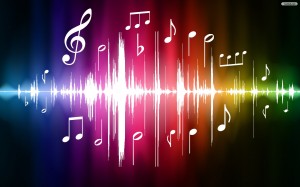

By Dave Austin, “The Music Professor”
Our lives are comprised of constant changes as people, places and events pass through them. As if to drive the point home, I was reading an article about things which are quickly disappearing from our daily lives – the post office, newspapers, bank checks, etc. Then, there it was, in glaring red letters: MUSIC! I stopped, stared at the page, trying to imagine life without music. However, as I resumed reading, I found some of my own predictions being echoed back at me.
You may have read some of my earlier writings in which I reported that the music industry is dying a slow and ugly death, partly because of illegal downloading, which it could have prevented, but also because new and innovative music and artists are being denied the opportunity to get their music to the people who would like to hear it. Artist development was formerly a vital part of the music industry as new artist were mentored and groomed before being introduced to their audiences. However, because of the costs involved, it’s no longer part of the process. Now, labels want ready-made performers who have already honed their chops, or who are just naturally talented. No, I’m not running in circles and screaming “The sky is falling!” but facts are hard to deny.
Let’s consider Napster as an example. Rather than slugging it out with the peer-to-peer music provider, the industry missed a great opportunity to make a deal with Napster and create a business model which conceivably would have revolutionized the music industry.
At the root of the problems is the multi-headed dragon of greed and corruption. (Payola, kickbacks, bribery, etc.) Record labels and radio conglomerates are self-destructing, some say in rightful retribution for years of pushing bad artists, bad music and $20 CDs. There’s also the matter of the industry’s killing off the music single and compelling consumers to purchase an entire CD just to get the one song they really wanted - another reason why downloading became a near-overnight phenomenon.
Broadcast radio, which traditionally told us what music to like and sold millions of albums, is now in a struggle for existence facing competition from iTunes, Pandora, Sirius XM, other internet/satellite providers and even cell phones. Sadly, the current generation has never heard good radio and holds little or no loyalty to local stations. News and sports talk radio and public radio are maintaining their niche audiences for the time being, but the remainder is a vast wasteland of stations trying for mass appeal with lame commercials and copy-cat music, but in truth, appealing to no one. The result: most radio stations make money only four to six hours of their broadcast day. Now, with multiple options available, would-be radio listeners are creating their own playlists of music to suit their individual tastes.
Radio has “repositioned” itself several times over past decades – the last with the arrival of television when radio switched from a general entertainment medium to one of music entertainment. Will radio disappear entirely? Probably not, but in order to survive in whatever form, it must quickly move to dramatically re-create itself to meet the demands of the current culture of instant gratification.
More than 40% of music purchased today is “catalogue items,” of traditional music from older established artists with whom the public is familiar. The same applies to the live concert circuit. Doubt it? Check out the sold-out concerts of the Rolling Stones, Bruce Springsteen, Bon Jovi, Madonna, Kenny Chesney, Paul McCartney, Fleetwood Mac and George Strait. Many DJs are keenly aware of this preference based on requests and crowd reaction at their events.
Here’s another fact: Many of today’s good artists have dumbed down their material to the most basic level in order to compete with acts which are more in demand. The result is a status quo of mediocrity which appeals to young listeners who want meaningless catchy music rather than love songs or great vocal performances.
It’s a safe bet that music, per se, will never go away, but the current methods by which it is manufactured, marketed and accessed most surely will. Like many other businesses in a changing environment, the music industry must also change in order to survive. In the near future, I would expect to see smaller record labels falling away, while the big players, Universal, Sony-BMG, EMI, etc. with their large catalogs of older artists (Beatles, Michael Jackson, Eagles, etc.), will likely survive but make less money and exert less industry influence. This presents an opportunity for new companies which are nimble and have a fresh, innovative approach stepping into the vacuum and creating entirely new ways to market both artists and music. Is it happening yet? I don’t think so, and with the downward trends within the industry, such positive change is not yet being seen on the horizon. However, economic pressures usually bring about change, and I believe that market forces and the instinct for survival are surely upsetting the status quo. It will be interesting to follow and learn what the “new music marketplace” holds for us.
To delve deeper into this topic, I suggest Steve Knopper’s book, “Appetite for Self-Destruction: The Spectacular Crash of the Record Industry in the Digital Age,” and the video documentary, “Before the Music Dies.”
